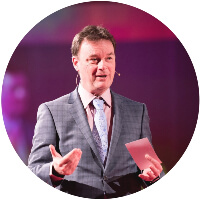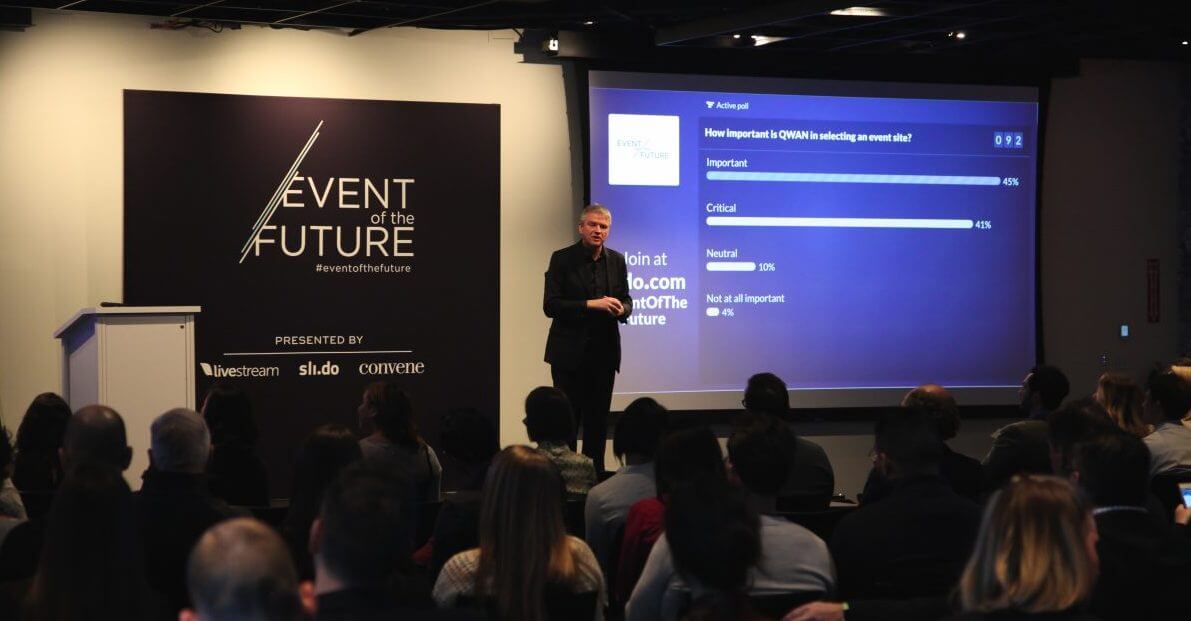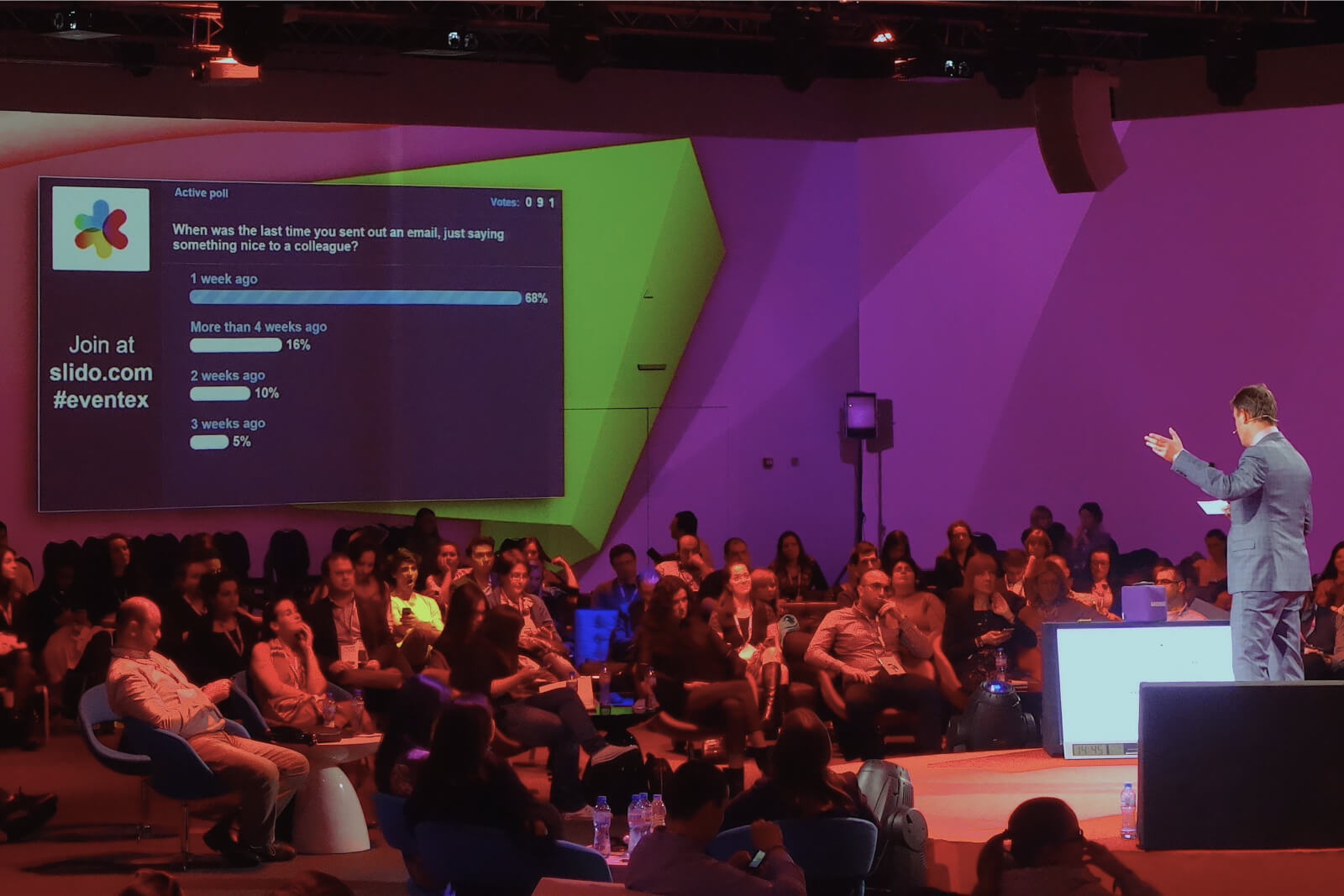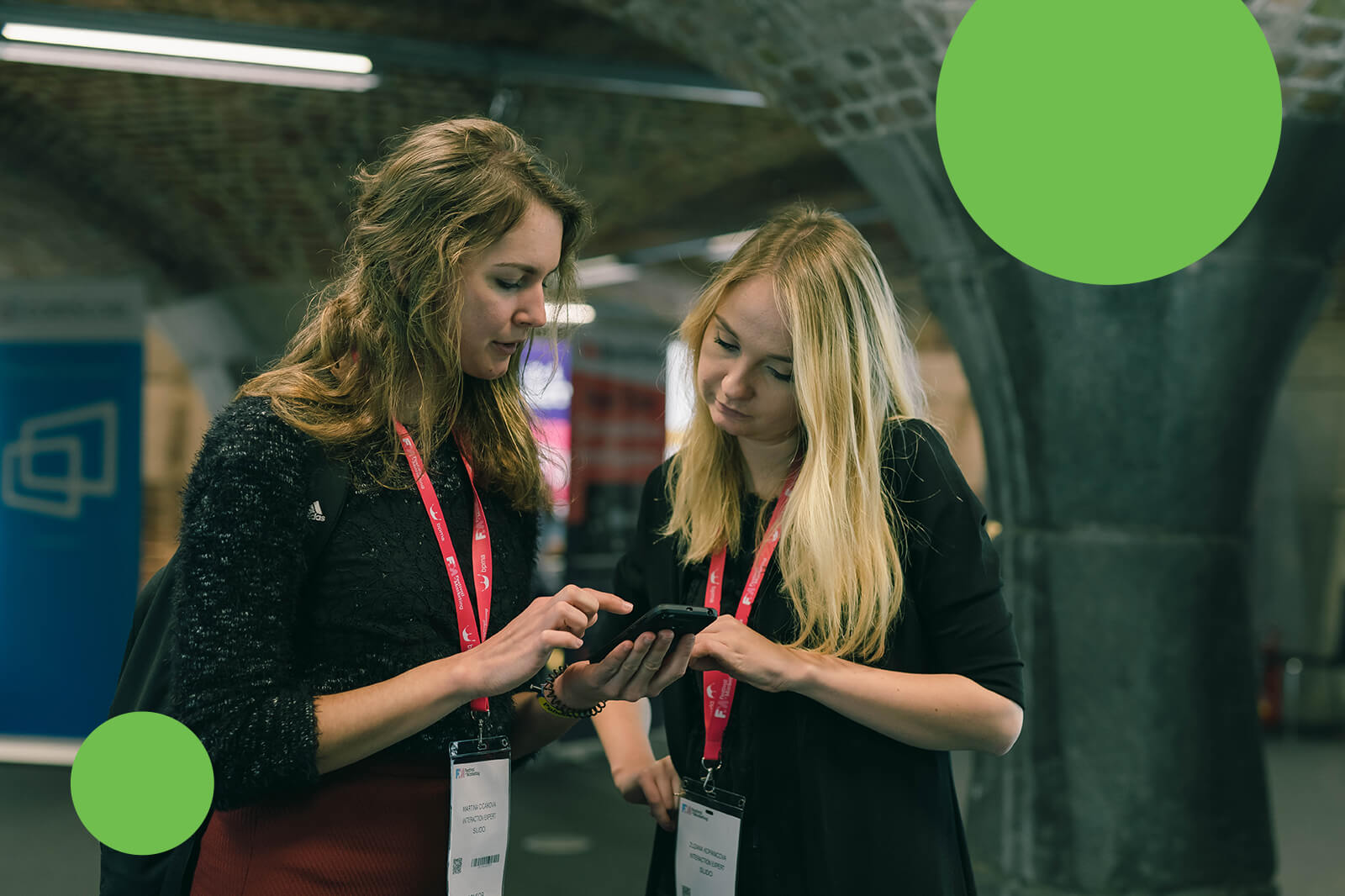Organizing an event without briefing a moderator is like sending a tour bus on a journey without informing the driver where you want the passengers to arrive.
During our event in New York, we’ve discovered that only 19% of event professionals in the room count moderators in the pre-planning phase.
Considering how critical the moderator’s role is, we were taken aback by the stats.
That’s why we approached some of the most forward-thinking moderators and asked them what they consider a valuable pre-event briefing.
Starting with the end goal in mind
We started with the most straightforward question: “What do you expect from event organizers during the pre-event briefing?”

“The most important thing for me is to understand what the aims and objectives of the event are. If I know what the event is trying to achieve, then I can manage the moderation process accordingly.
These aims may be hard or soft or both, but the more information I have, the better,” noted Padraic Gilligan, the managing partner of SoolNua and a seasoned facilitator, at the start.
 Jan-Jaap In der Maur, the CEO of Masters in Moderation continued in this line of thought. “I expect event organizers to help me make their event successful. And to value my expertise in interaction design.
Jan-Jaap In der Maur, the CEO of Masters in Moderation continued in this line of thought. “I expect event organizers to help me make their event successful. And to value my expertise in interaction design.
Only if we cooperate, we can do it. They know the topic, the objective and their participants. And I know how to engage people and how to make things work on stage.”

Narrowing down the focus on individual sessions, Kristin J. Arnold noted: “I expect organizers to provide their vision for the panel – and not rely on the same boring table and the usual suspects. The earlier you bring in the panel moderator, the better she/he can help influence the flow and format.”
A great moderator is able to make an onstage guest shine. To achieve that, he/she needs to be familiar with the speakers’ background and their area of expertise.
As a moderator, Padraic expects to “to be briefed about the speakers, particularly if there are any hot buttons, i.e., topics to explore or topics to avoid.”
Also, he finds it useful to talk about “any unusual, quirky or personal matter about the speakers as audiences really relate to the human face especially when the topic in question is abstract or high-level.”
Interaction Technology Briefing
An ever-increasing number of event organizers is equipping their moderators with interaction technology. From our position of a tech provider, we were eager to learn what exactly event moderators as key users expect to hear before the event.
“Ideally, I like to understand what the interactive technology can do – i.e., the full specifications – so I would require a full briefing, test drive and demo prior to the event.
If I haven’t used it before, I like to see it in action, used by someone who knows it well. In particular, I need to understand how flexible or versatile the technology is, i.e., does it have to be pre-loaded or can it be adapted mid-session?” commented Padraic.

Moderation is a fluid process, that can be hardly fully scripted and Padraic also expects the technology to be flexible in order to help him with his facilitation.
“Moderating a session is a live show and sometimes the best outcomes emerge on the hoof, i.e., they’re unprepared, unscheduled, extemporized. Interactive technology needs to be nimble enough to accommodate to the magic of the moment.”

Getting familiar with the technology is just the first step. For Jan-Jaap In der Maur, it’s important to “know which features you want to use at which point in the schedule.”
From our experience, many organizers go over the agenda and discuss which sessions are a good fit for crowdsourcing questions and when are the best moments to bring in live polling.
“Knowing how technology can impact my behavior and how it adds to the bottom line objective/ROI is super important too.” wrapped up Jan-Jaap.
Key discussion areas before the curtain goes up
Finally, we grouped some of the key questions that Padraic and Jan-Jaap indicated as important to discuss before the event. You can use them as a checklist for your own moderator briefing.
Event Objectives
- What are the aims and objectives? What does success look like?
- How do you want participants to feel by the end of the session?
- Why me (as a moderator)? What do you expect from me?
Participants + Speakers
- The background of speakers and their company?
- Why this order of speakers, why these speakers, why these panelists, why this work format?
- Who are the participants? What are their needs and fears etc.?
Scheduling + Meeting Design
- Scheduling – loose or tight; do we have any hard stops for breaks, meals, etc?
- What does the schedule look like? And more importantly, why is it designed as it is?
- Is there any room to change formats from a presentation to an interview, for instance, or make the meeting (even) more interactive?
Interaction Technology
- What technology do you want your moderator to use? What can it do?
- Which sessions and points on the agenda do you want to use it for?
- How do you communicate the technology to the audience?
Moderation Guidelines
- Hot buttons – anything that should be explored or avoided.
- Room, spatial setup.
- AV setup – sound, light, apps, etc..
Conclusion
Once the event gets underway, your moderator becomes the most important person to the success of your event. To help them succeed, you need to bring them in during your pre-event planning phase. The earlier you involve them, the better they can help influence the flow and the outcome of your event.
If you’re looking for more inspiration, read about these exceptional panel discussions that sparkled with interaction.




